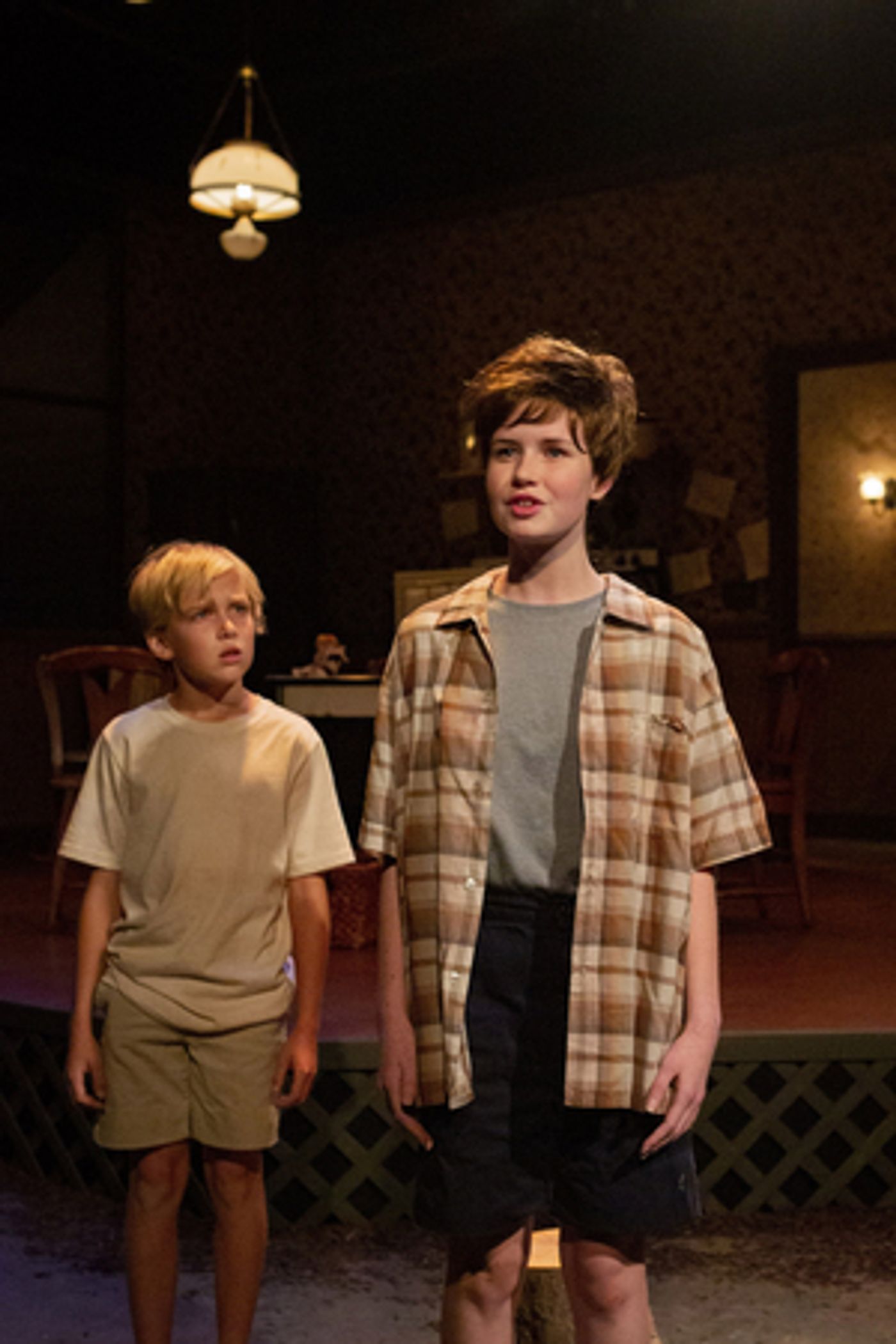Review: MEMBER OF THE WEDDING is Less Than it Should Be at Beck Center for the Arts

The play "Member of the Wedding" is based on Carson McCullers 1946 novel of the same name. The author also penned the script for the 1950 Broadway stage production which starred Ethel Waters, Julie Harris and Brandon DeWilde.
The stage version opened to universally positive reviews, with much praise, not only for the writing, but for the staging and the performances.
A musical version, television adaptation and a 1989 Broadway revival production, followed.
The story takes place over a few days in late August. It tells the story of 12-year-old Frankie Addams, who feels disconnected from the world. A self-described "unjoined person."
Frankie's mother died when she was born, and her father is a distant, uncomprehending man, escaping into his business, rather than being a caring father.
Frankie's world is mostly populated by the family's African American maid, Berenice, and her six-year-old cousin, John Henry. She has no friends in her small Southern town and dreams of going away with her brother, who is in the Army, and his bride-to-be, on their honeymoon.
The book and play are each a study of the motivations and psychological needs of the three main characters. It is a study of people, not of plot line.
The misfit Frankie (who some think is the alter-ego of McCullers) is frustrated, lonely, and restless, with few social skills, whose fantasy of hopes of going away with her brother and sister-in-law, to escape from her desolate life, are dashed. Both John Henry and Berenice are left adrift as the family unit breaks apart.
McCullers takes on racial and sexual identity issues, both of which were shocking topics for the time.
Frankie wishes people could "change back and forth from boys to girls." John Henry wants them to be "half boy and half girl."
Berenice would like there to be "no separate colored people in the world, but all human beings would be Light Brown color with blue eyes and black hair."
The brilliantly written play has become a classic in the American dramatic genre.
Carson McCullers once said of her play, that it was "one of those works that the least slip can ruin. It must be beautifully done. For like a poem there is not much excuse for it otherwise."
I wish I could write that the Beck production fulfilled McCullers desire for being beautifully done, but, unfortunately, I can't.
For a staging of the epic to be successful, each character must be realistically created and the staging so smooth that we perceive we are eaves-dropping in a real world. Witnesses to overhearing real people, not dramatic characters.
Though the cast puts out full effort, only Lisa Louise Langford, as Berenice, comes close to being natural, talking meanings, not emoting words. She creates a woman whose life as a black Southern woman, caretaker of a dysfunctional family, and having her own personal problems, is real, identifiable, relatable.
Putting children on stage is always a danger. Usually they have limited training and need much help from a knowing director to understand that in a realistic world, which this play clearly creates, it is necessary to grasp the underpinnings of the character and the need for being, not acting, not emoting lines. To become the character, not portray the character.
Some of the supporting actors also needed work on line meanings, projection, using consistent accents, and the development of real people.
Besides the shallow development of characterizations, some of the staging was awkward. The L-shaped audience seating area in Beck's Studio Theater can cause sight and hearing issues. The staging must take that into consideration, but, in this production, often didn't. For example, sitting John Henry, in several scenes, with his back to the largest section of the audience, made it difficult for many to hear his lines. And staging a scene in a notch between the two audience seating areas made seeing and hearing the action difficult for many.
Capsule Judgment: Unfortunately, the staging and performance quality of "The Member of the Wedding" was not what it should have been.
"Member of the Wedding" is scheduled to run at Beck Center for the Arts through November 3. For tickets and information call 216-521-2540 or go online to http://www.beckcenter.org
Next up at Beck: A reprise of "Shrek The Musical" form December 6, 2019 through January 5, 2020.
Reader Reviews
Videos

